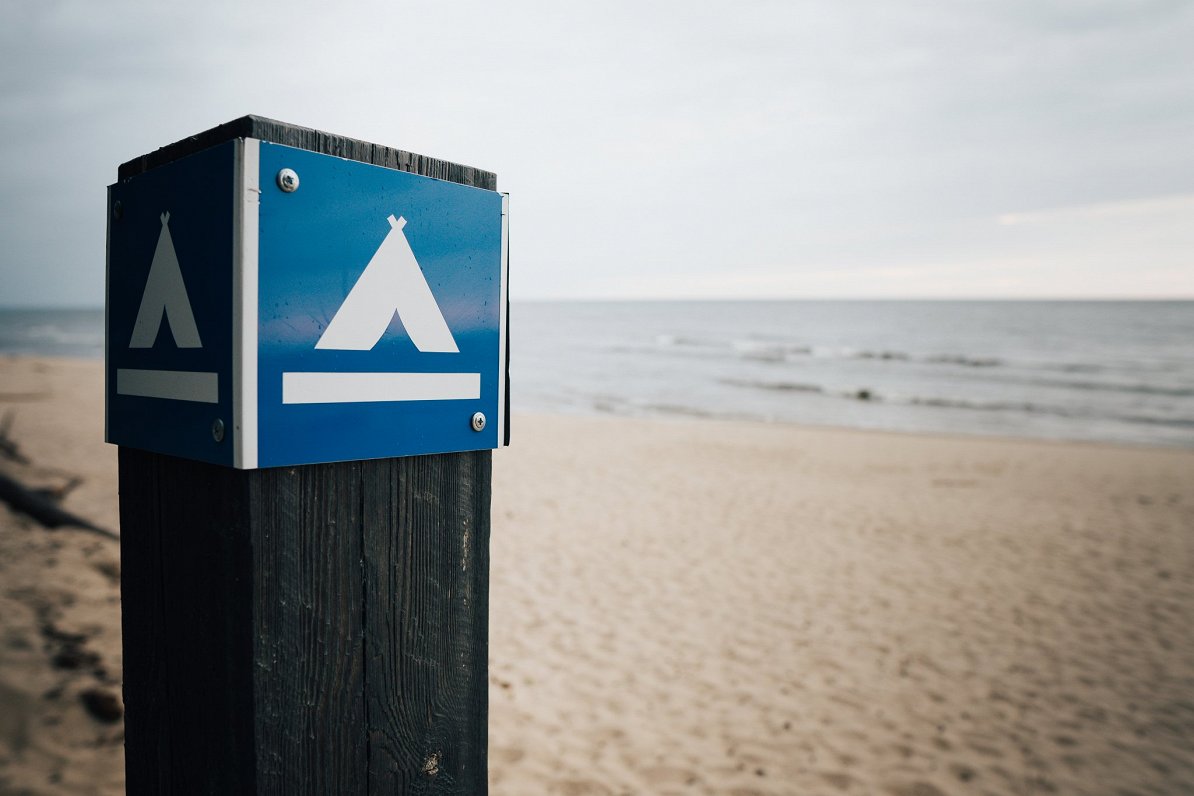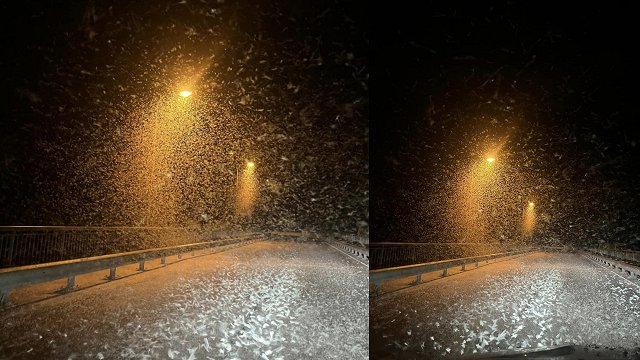Article 5 of the Forest Law stipulates that everyone has the right to move freely through state, municipal, as well as private forests, unless signs restricting movement are displayed, such as the inscription "Private property" or "No entry", or the territory is located in one of the specially protected nature reserves.
State-owned forestry company "Latvijas Valsts meži" (Latvian State Forests), which manages huge tracts of Latvia's forests and bogs, informed LSM that in forests outside protected areas it is allowed to spend the night and set up a tent or hang a hammock between the trees at any place and time, while observing the common rules of behavior applicable by local governments (such as not making excessive noise or dropping trash).
But if it is planned to spend the night in one place in the forest for more than a week, then you must inform the company in writing. Written approval must also be obtained if a group of more than 50 people plans to spend the night in the forest.
However, this does not apply to private property. The landlord may be unhappy with the presence of unwanted guests in their area and has the right to tell them to leave. The 'Right to Roam' that is in place in the Scandinavian countries and also includes rights to access private land, with certain restrctions, does not apply in Latvia.
Author of the outdoor blog "Go to nature" Kristaps Kiziks advises not to rely on luck, but to study the route ahead of time and choose places that are state-owned.
"If a private owner notices you in his territory, then there is no need to shout and argue - these are his rights, and you are unlikely to want to meet the police or the dog. Always be polite to everyone... You have to understand that you're a visitor, both in nature and on any other property. You're not in your own home," emphasizes Kiziks.
At present, more than 300 recreation places have been established in the forests of Latvia, where tents and campfire places are also available. In turn, with the help of mobile applications such as "LVM GEO" and "Nature Tourism" you can find out your location and find the closest possible site to it. You can also see the clearly marked boundaries of the land managed by the "Latvian State Forests" and the protected nature territories, thus understanding whether you have lost one of them.
Nature reserves only with a permit
In Latvia, several types of specially protected territories have been established: national parks, biosphere reserves, nature reserves, etc. They are marked with a sign - an oak leaf pictogram on a green background, as well as on tourist maps and information boards.
Permitted and prohibited activities in these territories vary. For example, special restrictions have been developed for the nature park "Piejūra", which prohibits the installation of settlements, construction of tents, lighting fires outside specially designated places and without the written permission of the Nature Protection Board (DAP).
"A tent set up in an unauthorized place promotes the degradation of a habitat, as well as harms the life of the species living there. For example, the Gauja estuary is a nesting place for several specially protected birds. If a tent is pitched near a bird 's nest, it can disrupt the whole nesting process, " says Jānis Galakrodznieks, consultant of the Carnikava Region Tourism Center.
However, DAP employees sometimes find that someone has destroyed signs placed in nature with the idea that if the sign does not exist, then there is no prohibition. However, ignorance is not a defense and if a fire has been set up or a tent has been set up in an unauthorized place, but the information sign is not there, it is still an offense.
On the coast, municipal rules apply
Whether a tent may be erected on the coast wherever you like is determined by Section 36 of the Protection Zones Law and the binding regulations of each municipality. However, not all municipalities have adopted regulations that set restrictions on tent construction and campfire lighting. For example, in Roja Parish, there is no ban on setting up tents and lighting a campfire on the sandy part of the coast, as it is not part of the coastal dune protection zone.
Gunita Bisniece, an official of Salacgriva municipality, explains that tents may be used only in special recreation places where there are no dunes. Such places are in the Fishermen's Park, which is arranged as a recreation place by the sea, in the "Latvijas Valsts meži" recreation place "Vasas", which is located in the nature reserve "Vidzeme rocky seashore", as well as on several private campsites.
Anta Lībiete, the head of Pāvilosta Tourism Information Center, suggests the use of places provided for the purpose, for example, on the road section from Saraiki to Pāvilosta there are 10 places by the sea where you can set up a camp or spend the night, and from Pāvilosta to Ulmale - 6 places. In coordination with the municipality, a fireplace can also be lit on the beach. She says that with the start of the tourist season, the number of people breaking the law by setting up illegal settlements is increasing: "This problem is quite big, because in many popular illegal campsites nature is being severely damaged." These campers include quite a few from Lithuania, she notes.
Wherever you camp, the key is to respect nature and leave nothing behind. Doing damage or leaving trash can result in a 1,000 euro fine.
For more information try these links:
-
All Latvian state forest recreation places where you can light a fire can be found on the map of the "Mammadaba" website .
-
Latvian state forest territories and recreation places can be found in the "LVM GEO" application.
-
Specially protected nature territories and recreation places of the Nature Protection Board can be found in the "Nature Tourism" application.
-
You can find out whether the land belongs to the state, local government, private or legal person on the State Land Service website.
Happy camping!





























